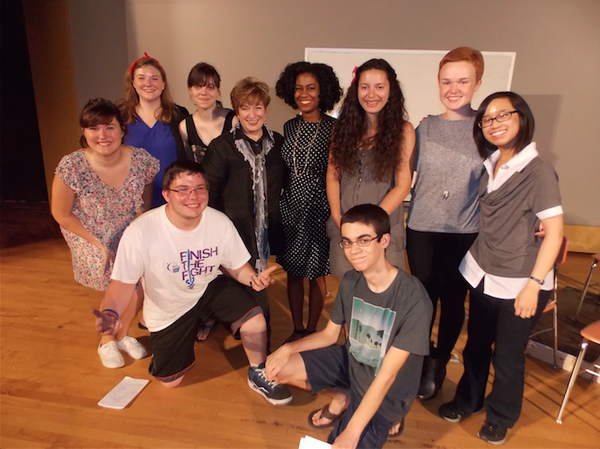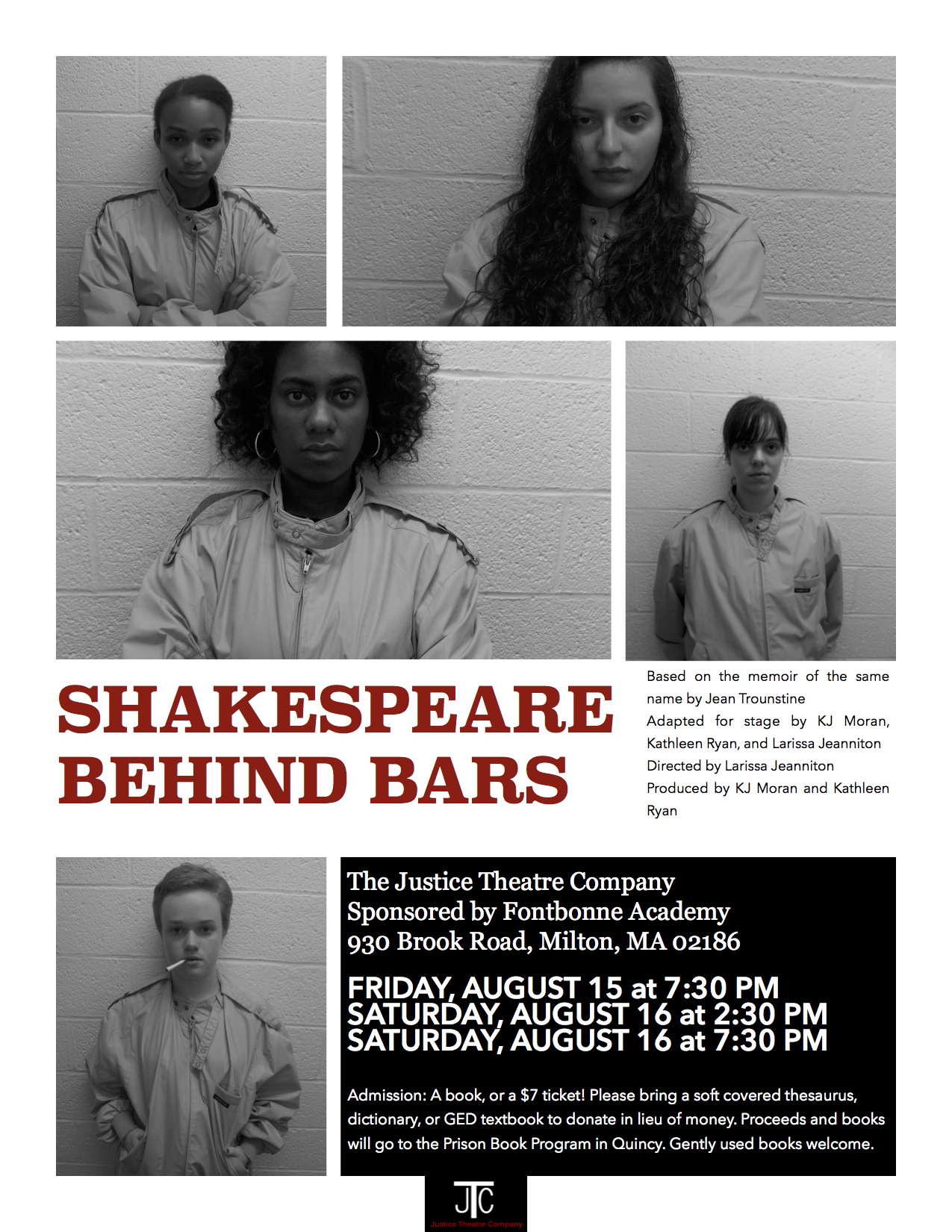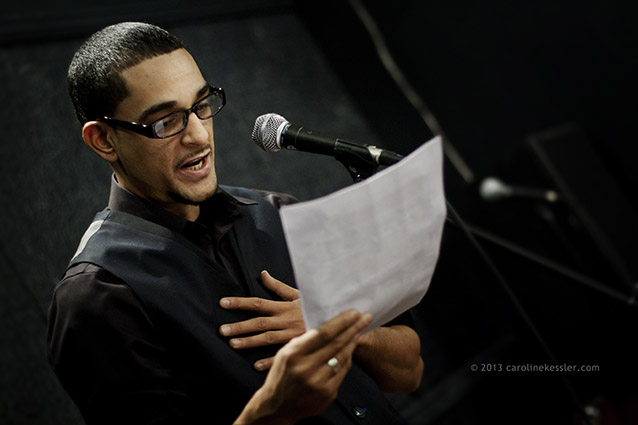This weekend I went to West Virginia with many education in prison folks from around the country to the Educational Justice and Appalachia Prisons Symposium.

Morgantown, West Virginia is a cross between a college town and scenes from A Coal Miner’s Daughter. It’s only 1 and 1/2 hours from Pittsburgh but a lot of rolling hills until you hit the city. The speakers were stellar, each adding something unique to the event. But I couldn’t stop singing “Country Roads, Take Me Home” all weekend.
The first panel with incarcerated Inside Out students was accompanied by an officer to the presentation where presenters talked about their lives, and writing while locked in a federal prison. Inside Out in WVA brings college students inside in a unique program that offers college credit to both inside and outside students, Some comments from prisoners who were in attendance: “Without the outside, us on the inside would just be talking to ourselves;” and “Not writing about mass incarceration today would be like not writing about slavery in the 19th century.” Anne Rice, a powerhouse who teaches in a prison program with Lehman University, and has coordinated TEDx talks inside prisons, was also on that panel. She reinforced recent RAND Report findings–higher ed reduces recidivism. Also raised in this panel were two important concerns: some students of color don’t want to be in Inside-out programs because they don’t want to be any nearer than they are to the CJ system. And there can be a stigma associated with doing programs.
How hard it is to get past your past with social media continuing to scarlet letter you, I thought, as audience members rightly talked about how we need to find jobs for kids coming out of the system, fix the system and not-so-much, the kids. And I thought again of what Angela Davis said recently in a talk at Babson College which knocked my socks off: “Prisons are havens for outdated ideologies.”
The next panel included Jim Rubenstein, the Commissioner of Corrections in West Virginia, who shocked me when he said West Virginia has the 4th lowest recidivism rate in the country at 27%. Why, I wondered? Do they have such long sentences that no one gets out? Considering that Massachusetts’ recidivism is closer to 60% I want to try and understand his data. The Commissioner also spoke of drug addiction and incarceration. When I spoke on Changing Lives Through Literature, I said, in response to the first two panels, that we should take the word “inmate” out of our conversation, and that we should approach drug addiction as a health problem not as a criminal justice issue (See The House I Live in). Then I spoke about the program I love that has graduated more than 5000 probationers nation-wide.
The evening was highlighted by Rebecca Ginsburg’s stunning program, Education Justice Project, which is very collaborative with people inside/outside. It is a model college-in-prison-program, and the keys are: critical pedagogy, involvement of families, and starting slowly. One of my favorite things that Ginsburg said is that the program is “about the quality of life for anyone wherever they stand.” It is not just about recidivism, or re-entry. She highlighted that at the Higher Education in Prison conference in October, 2014, prisoners will be presenters as well as scholars from the outside.
Restorative Justice (RJ) was one of the highlights of the next day. Attorney Brenda Waugh said RJ depends on humility, respect and wonder, and the central issue is to “address harm.” Victims meet with those they have harmed, and although forgiveness is not always possible, some kind of understanding is. Judge Michael Aloi said entering a courtroom is “entering intense suffering.” He talked about “restoring dignity” to people, expungement of records, and being a non-judgmental judge. Attorney Valeena Beety, who teaches at the WVA Law School, quoted Angela Davis by saying that “prison is an abstract site into which people are placed,” and it is supposedly justified by the fact that it incapacitates. Most impressive at this panel was Jacqueline Roebuck Sakho who brought her small children, asked permission of the elders in the room before she spoke, and said we cannot do restorative justice until we confront multiple narratives of the system, who is responsible for crime, and who or what is actually guilty .
.
Brenda Waugh, Judge Aoli, and Jackie Sakho.
Kyes Stevens shocked me with this: Alabama prisons are 198% overcrowded. Stevens worked at Tutweiller Prison where abuse is rampant, she said, and then “In steps poetry.” The Alabama Prison Arts & Education Project is thriving with many sites throughout the state and many teachers. Stevens finds joy in her work in prison, knows how to bring in all the stakeholders, and my favorite comment from her: “A handful of pencils” can lead to “amazing art.”
Both the Appalachian Book Project and Books Through Bars in Philadelphia do the incredible hard work of getting books to prisoners, both in West Virginia (ABP), and up and down the east coast (BTB). Marc Niesen from Chatham University in Pittsburgh mentioned the epiphany we all have who teach/have taught inside: “I can walk out.” The Chatham program has a great resource and a video on their site with the concept that words help you get outside your cell. On that same panel was Laura Leigh Morris who teaches in a Texas prison where women say they want the writing class to be a “refuge.” Most interesting, she said, “I have to pee in a cup to teach there.” Oh Texas!
The final presentation of the weekend was Dwayne Betts, poet, former prisoner and now student at Yale Law School. He shared his experience behind bars growing into books and words. He read from his books of poetry and I am now devouring his memoir, A Question of Freedom. What an amazing mind. I’ll leave you with a snippet from one of his poems, entitled, “A Post-Modern Two Step:”
And this is ruin. Damn these chains,
this awkward dance I do with this van. Two-step,
my body swaying back and forth, my head
a pendulum that’s rocked by the wild riffs
of the dudes I’m riding with: them white folks know
you ain’t god body, what you commune wine
and bread? Where you from son? Red lines?
To what Onion? My eyes two caskets though,
so the voices are sheets of sound. Our van as dark
inside as out, and all the bodies black
and voices black too and I tell my god
if you have ears for this one, know I want
no part of it, no Onions and no tears.
I tell no one, and cry my dirge.
This place,
the cracked and scratching vinyl seats, the loud
loud talk of murder this and blanket fear
around the rest, is where I’m most at home,
but it’s beyond where prayers reach, a point
something like purgatory. I lean back
and drift in sleep as someone says, his voice
all hoarse and jacked, all broken songbird-like
all revolutions end with a L-note.
What a weekend.
 . You probably won’t have any trouble knowing which one of the above is me.
. You probably won’t have any trouble knowing which one of the above is me.


